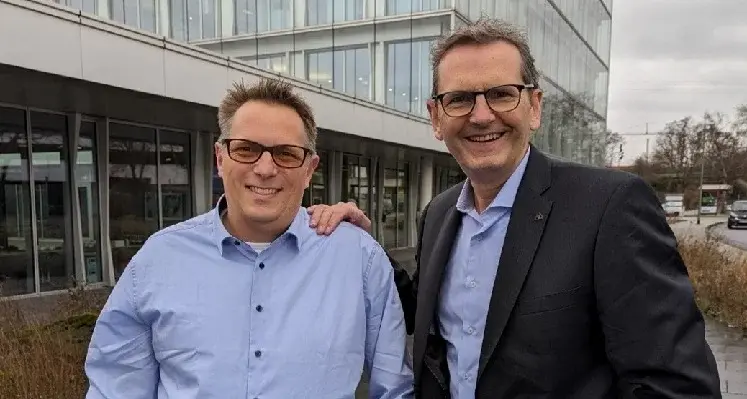In an exclusive article for Oil Review Middle East, Hilko den Hollander and Stefan Kranz, global energy industry managers, KROHNE, discuss the vital role of measurement technology in hydrogen custody transfer
Hydrogen is gaining traction as a versatile energy carrier that can help to decarbonise industries ranging from chemicals to heavy industry. Its applications are diverse, from powering fuel cells to being used as a feedstock in chemical processes. However, the successful integration of hydrogen into the global energy infrastructure hinges on critical aspects, such as precise and reliable measurement technology. From ensuring accurate custody transfer to complying with international standards and avoiding carbon emission penalties, measurement technology is one of the linchpins that holds the hydrogen economy together.
Custody transfer is a vital phase in the supply chain of any energy commodity, involving the precise measurement of the quantity and quality of the commodity being transferred. For traditional hydrocarbons, well-established technologies and standards exist to facilitate this process. However, the introduction of hydrogen and other low-carbon energy carriers necessitates new approaches. Hydrogen's unique properties, including its low density, high diffusivity, and potential for material embrittlement, present significant challenges in production, transportation, and storage. Addressing these challenges requires advanced measurement technologies that can ensure the accuracy and reliability of hydrogen handling, particularly during custody transfer—the point at which ownership of the energy commodity changes hands.
Accurate measurement essential
Accurate measurement during custody transfer is essential for several reasons. Firstly, it ensures that both the buyer and the seller are protected in the transaction, with the correct amount of hydrogen being accounted for. Secondly, accurate measurement is crucial for regulatory compliance, particularly in light of global standards and legislation that govern the hydrogen economy.
Beyond the economic implications, accurate measurement is also critical for ensuring safety in hydrogen custody transfer. The hazardous nature of hydrogen necessitates the use of advanced measurement systems that are not only precise but also equipped with diagnostic and monitoring features to detect potential issues before they escalate. Adherence to global regulations governing the handling and transportation of hydrogen is essential for avoiding legal liabilities and ensuring the safe and efficient transfer of hydrogen.
As the hydrogen economy continues to develop, the role of measurement technology will become increasingly important. The industry is moving towards greater digitalisation and automation, with advanced sensors and data analytics playing a key role in optimising custody transfer operations. Future developments in measurement technology are likely to focus on enhancing accuracy, reliability, and integration with digital platforms for real-time data analysis.
Moreover, as hydrogen production and distribution networks expand globally, there will be a growing need for standardised and scalable measurement solutions.
Companies like KROHNE are developing the advanced technologies needed to address these challenges, providing measurement solutions that are both accurate and compliant with international standards.
By adhering to global standards and leveraging advanced measurement tools, the energy sector can support the safe, efficient, and sustainable transfer of hydrogen, paving the way for a cleaner and more secure energy future.
The full article is published in the latest issue of Oil Review Middle East.










